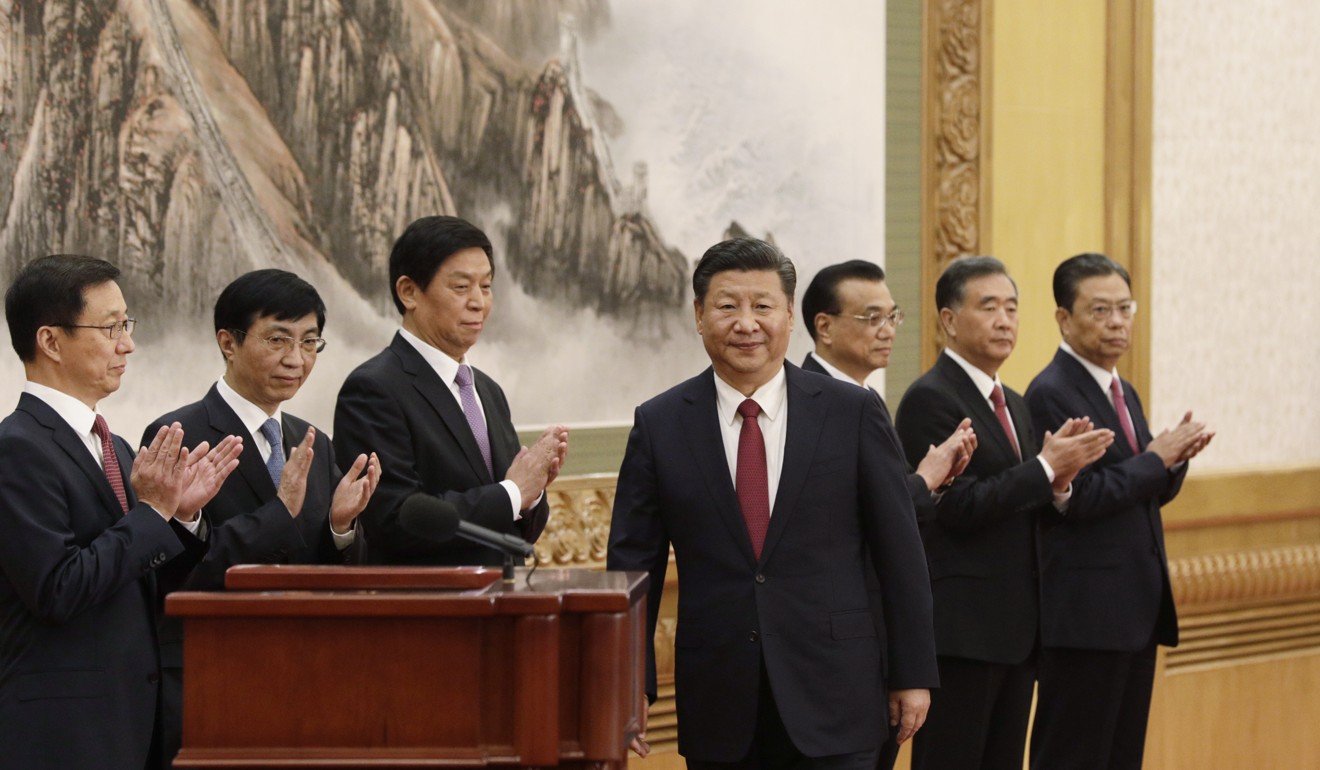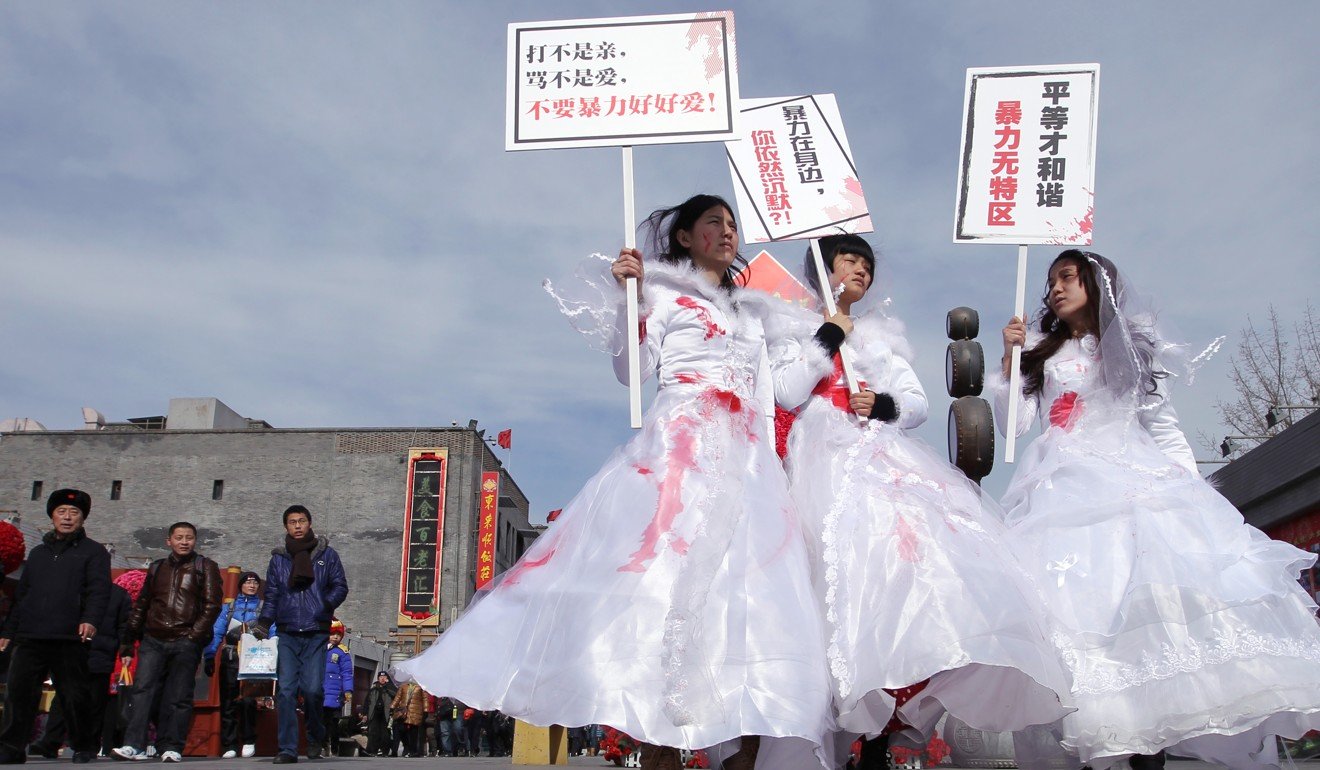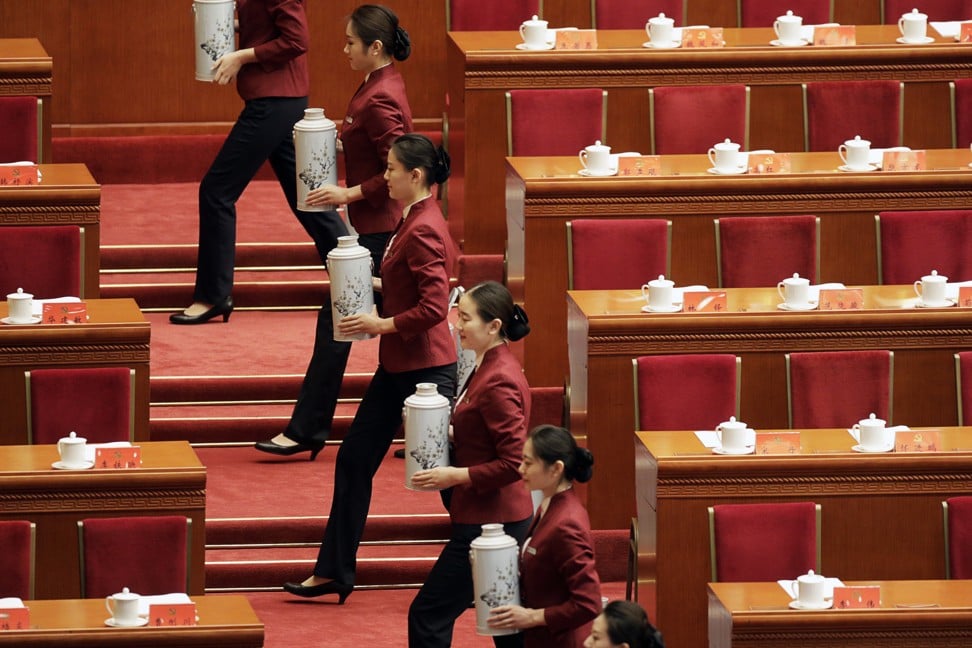
China, a model for gender equality? The reality would say otherwise
Audrey Jiajia Li says the glaring absence of women in top national decision-making bodies, and a culture where sexism and misogyny still thrive, mean female empowerment in China still has a long way to go
Moreover, the state-owned China Daily seized the opportunity to reinforce cultural superiority, with a commentary claiming there were no Weinstein-type sexual predators in China, as “men are taught to be protective of their women”.

State media ridiculed for claim women are never harassed in Chinese culture
In June, on China’s Twitter-like platform Weibo, several users identifying themselves as Beijing Film Academy students claimed that a female student had been sexually abused by a professor, before the posts were censored and their accounts removed. Two years ago, five feminist activists were detained for over a month for planning awareness-raising activities against sexual assault on Beijing’s buses.
In rural areas, sexual abuse cases involving “left-behind” children of migrant workers surface from time to time. Recently, a schoolteacher in Guangxi province called out local officials on Weibo for blacklisting her over a contract renewal, after she exposed a case of female pupils being molested.
Being forced into the underground world of child brides is another nightmare. Earlier this year, two sisters from greater Chongqing described on social media their ordeal of being sold into marriage with much older men and giving birth as young teenagers. They then found themselves under surveillance and were asked not to speak to international reporters by the government-run Women’s Federation.
They hold up half the sky: six of every 10 of the world’s self-made, women billionaires are in China
A 2013 UN survey of one county found nearly half the male respondents had been violent towards their wives or girlfriends: “Beating my own partner is not a big deal” said one. Many men, even women, do not consider domestic violence a serious issue, and law enforcers are usually reluctant to intervene.
In 2009, 26-year-old Dong Shanshan from Beijing was beaten to death by her husband. She is reported to have called police eight times before they showed up. Her husband received just 6½ years in prison.
Marriage reform implemented soon after the founding of the People’s Republic in 1949 does on paper afford some equal rights, but society’s report card on gender equality is a mixed bag. In the Mao era, many Red Guards and other girls sent to the countryside for “re-education” faced sexual assault, and it was common in their memoirs. In a 2011 episode of Celebrity Rehab, Chinese American actress Bai Ling described being sexually abused while serving in a military performing arts unit as a teenager in China.
Chinese woman dies after four abortions in a year trying for boy
Last year, an online post challenged the official narrative of a military-spouse recruitment drive for soldiers posted in remote Xinjiang half a century ago: “Eight Thousand Hunan Women on Tianshan Mountain”. The viral post questioned the morality of tying women’s marriage to the needs of the state. As usual, it was promptly deleted.

Cosmetics giant urges ‘leftover women’ to change destiny
A professor at a prestigious university a few years ago stirred up controversy with the remark: “History has proven that academia is not the domain of women.” An online petition demanding an apology, led by dozens of women pursuing advanced degrees, was removed and some signatories were reportedly admonished by the authorities. This might again showcase Chinese society’s high level of tolerance towards gender discrimination and suspicion of the civic engagement of feminists.

Pregnant Chinese woman ‘commits suicide’ after family refuse to allow her to have a C-section
Amid the recent promotion of traditional values, where male chauvinism plays a major part, and the rise of antagonism towards “political correctness” following Donald Trump’s electoral victory, blatant sexism on social media has become commonplace. Female public figures deemed friendly towards refugees are often subjected to vicious attacks. Blogs and comments are frequently littered with vulgar name-calling, the most prominent targets being German Chancellor Angela Merkel and China’s first UNHCR goodwill ambassador, Yao Chen.
Audrey Jiajia Li is the 2017 Elizabeth Neuffer fellow with the International Women’s Media Foundation. She is currently in residence at the MIT Centre for International Studies

